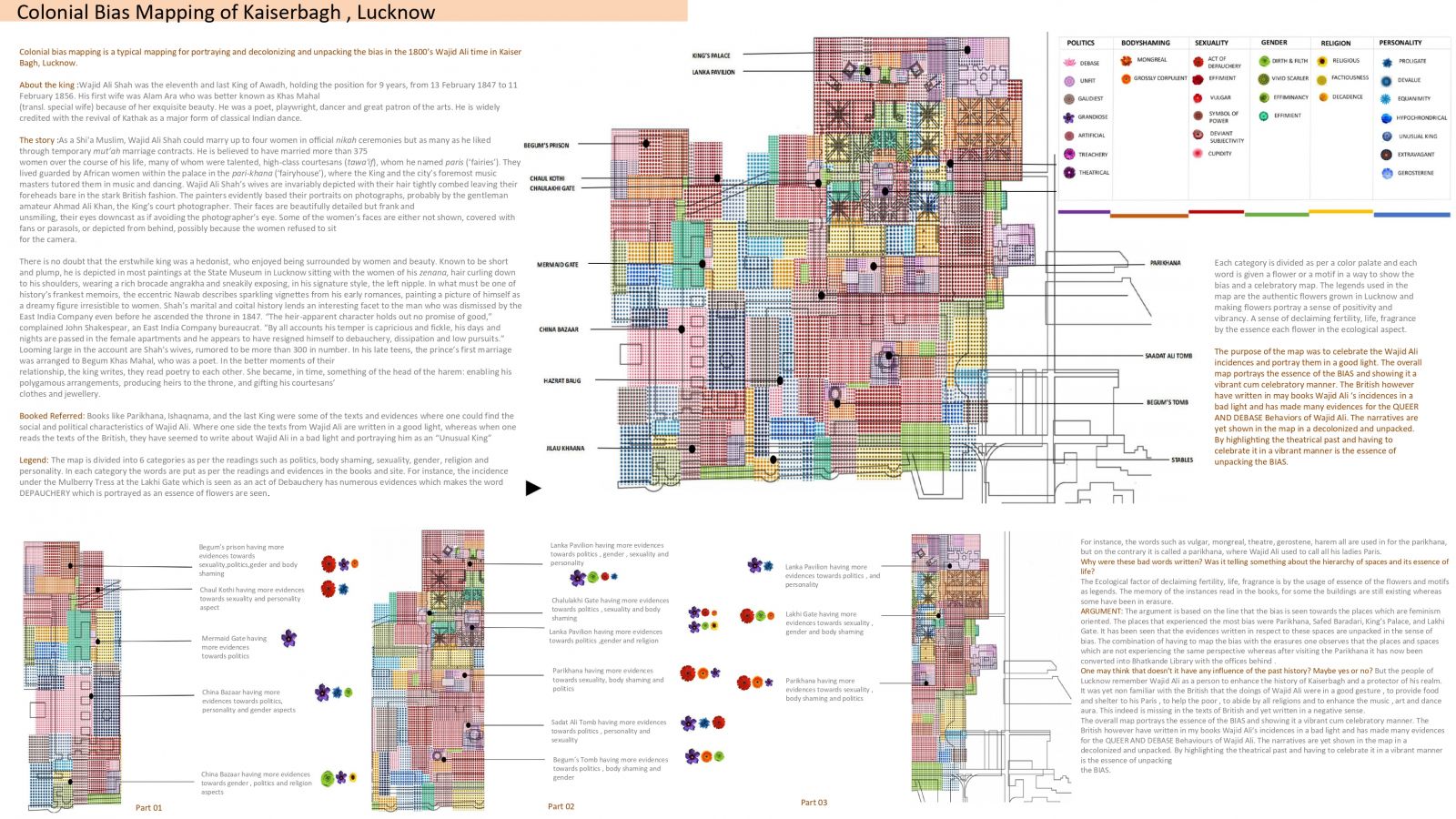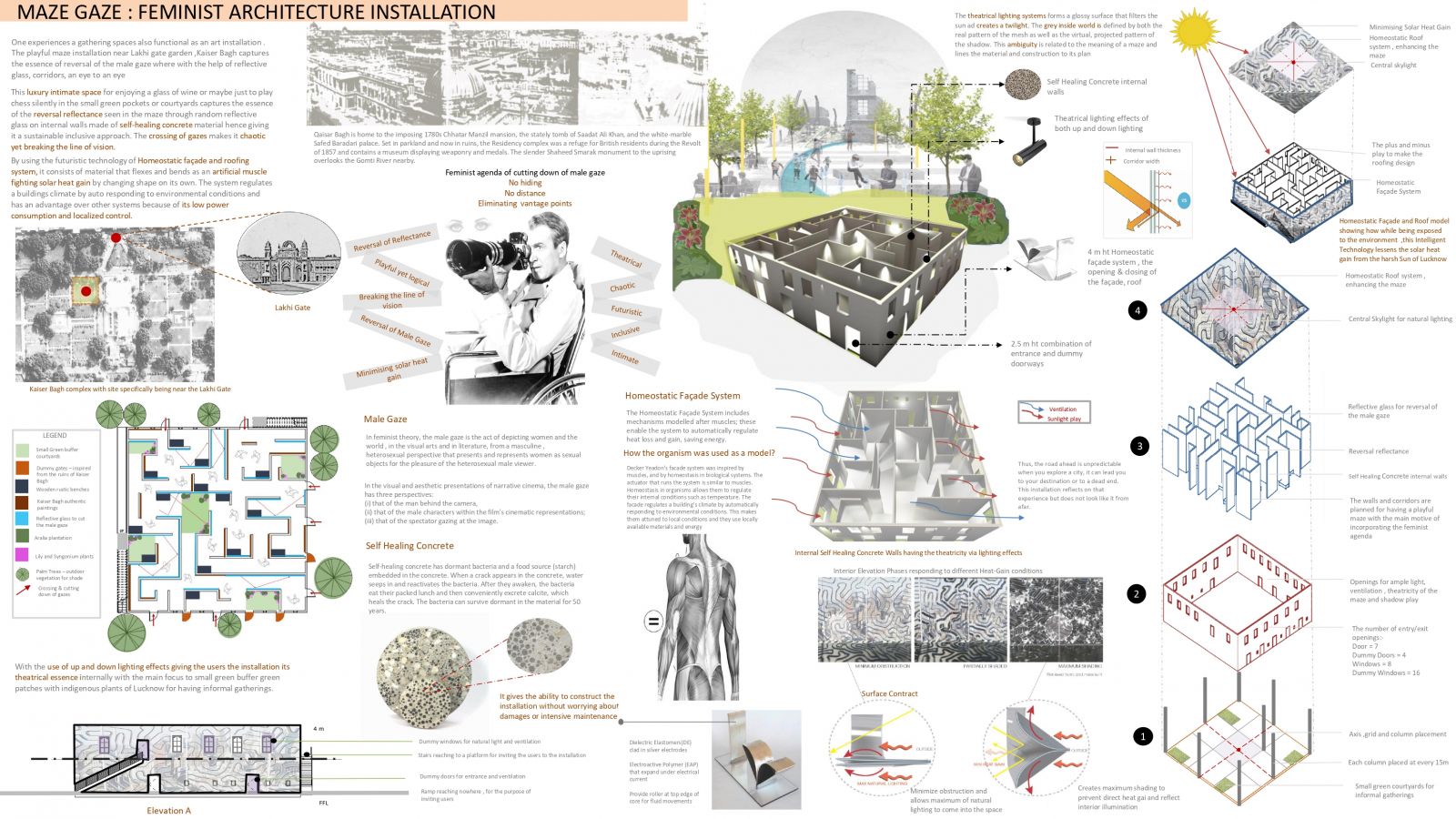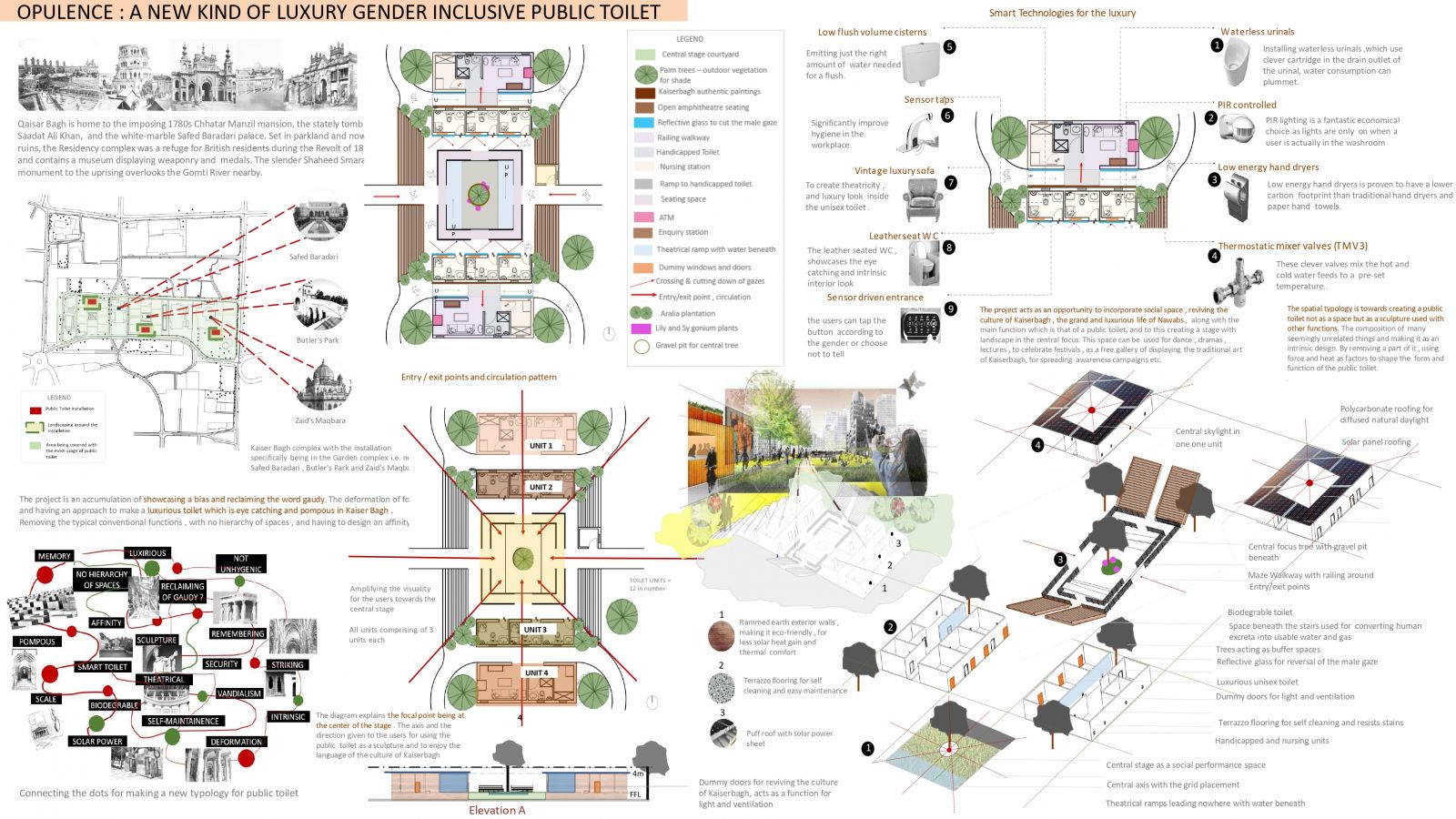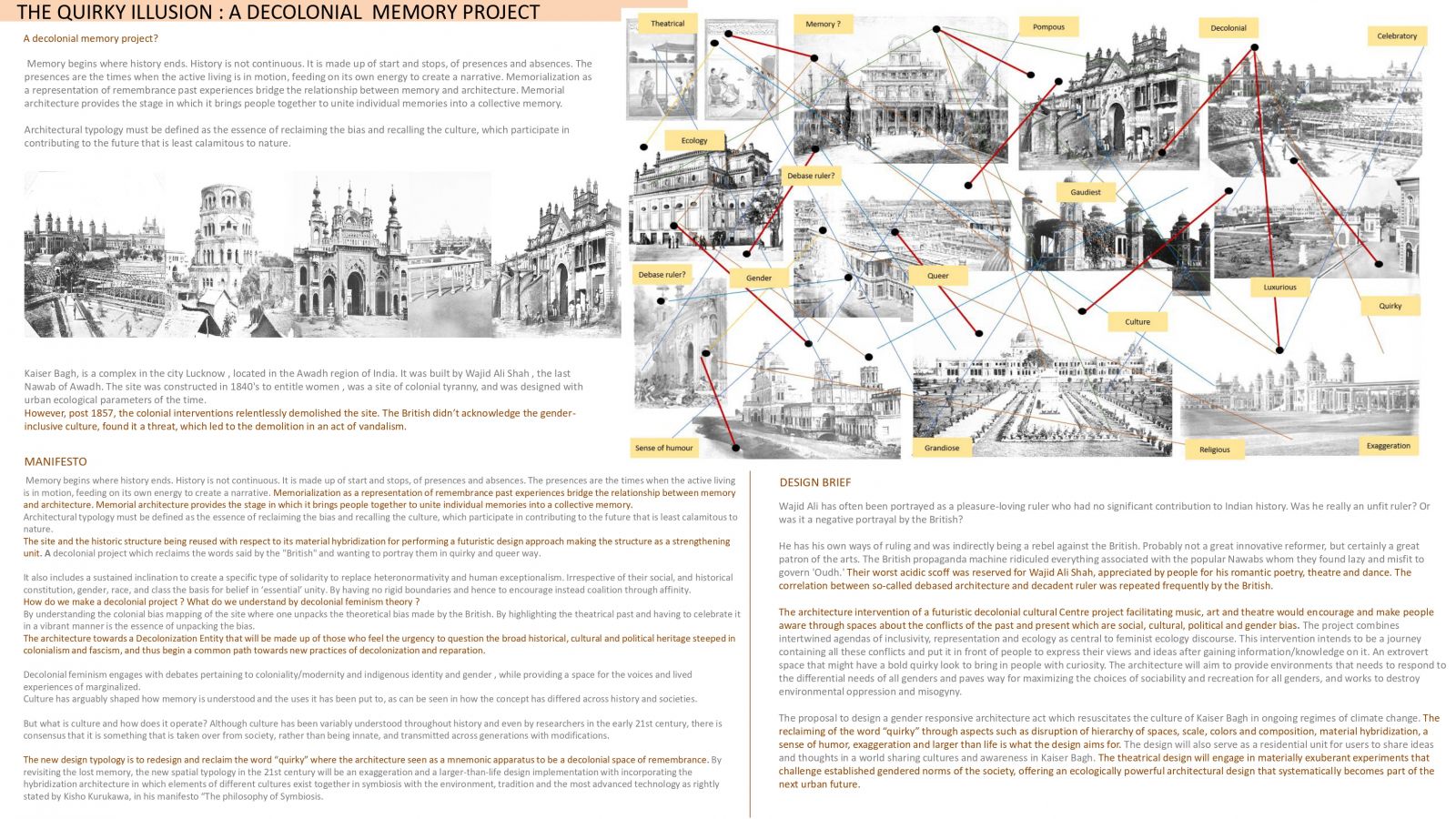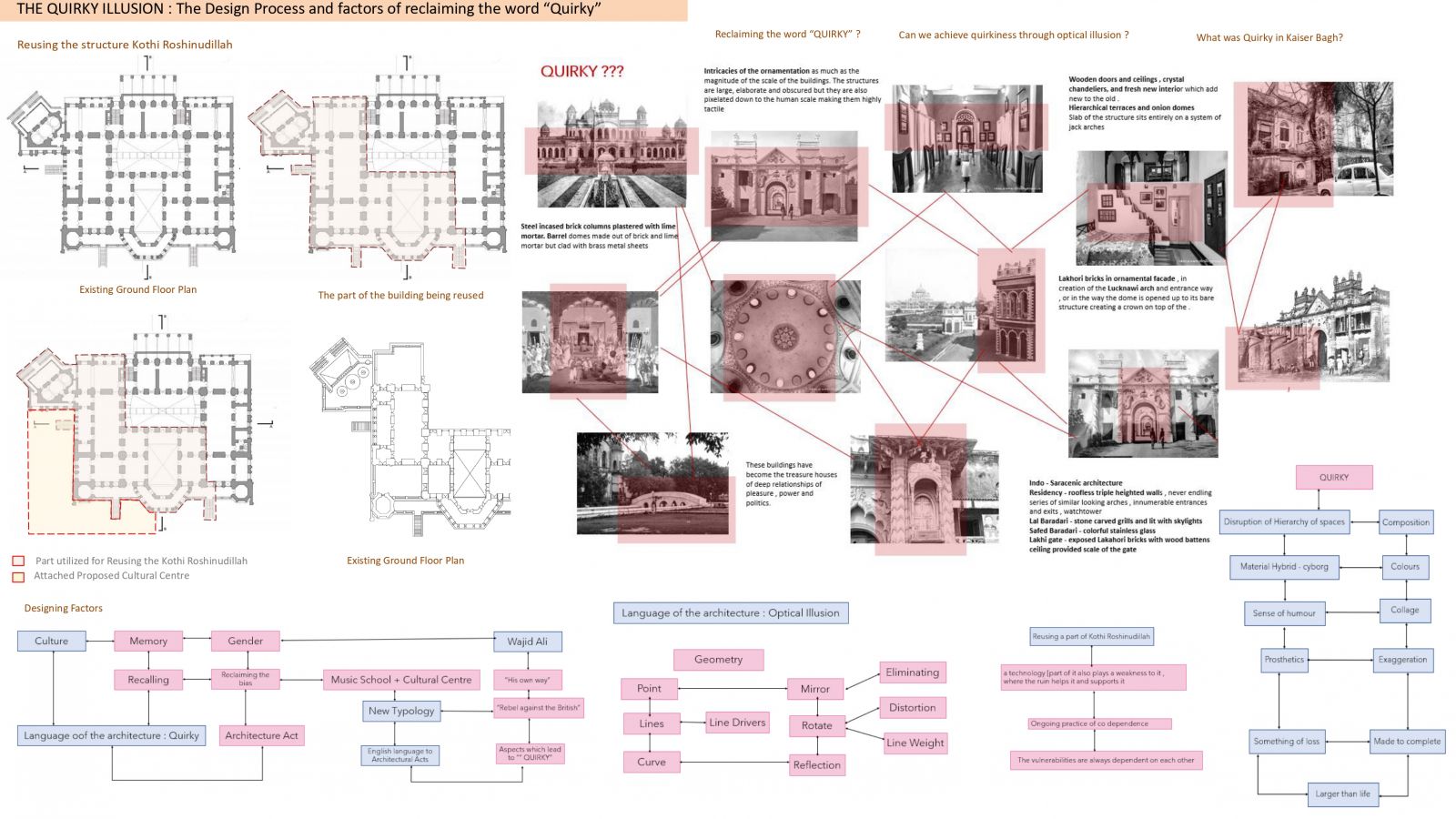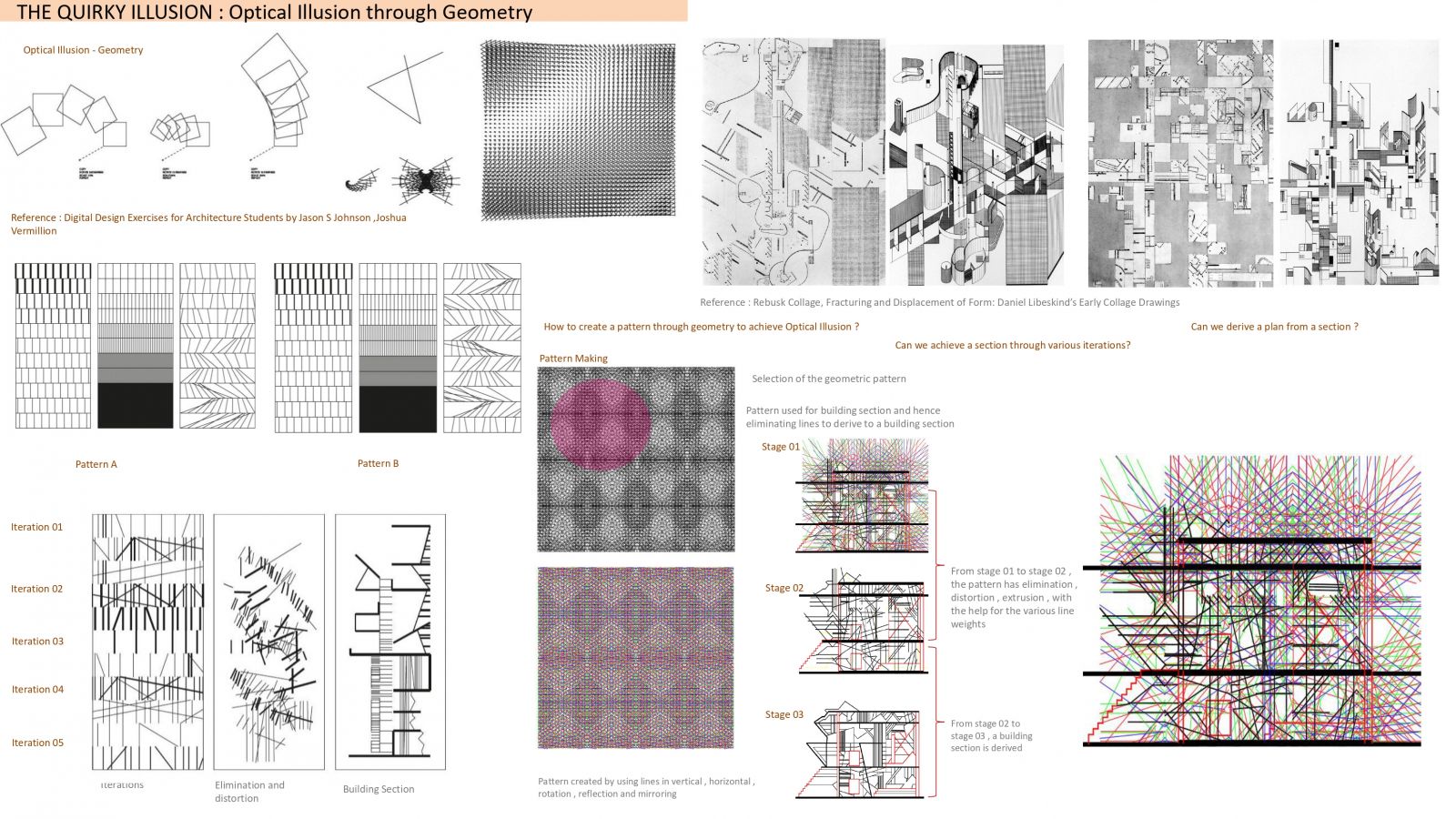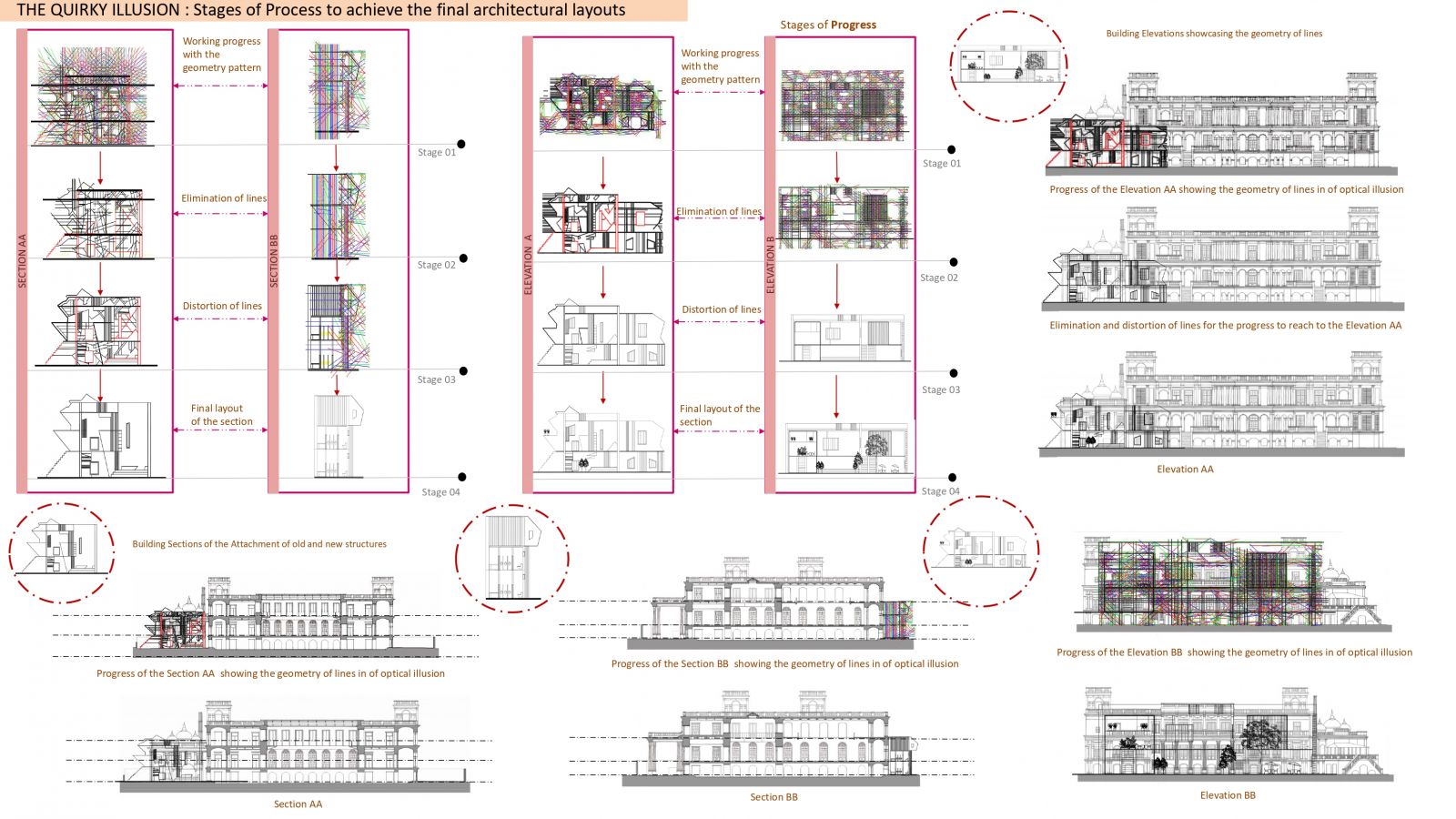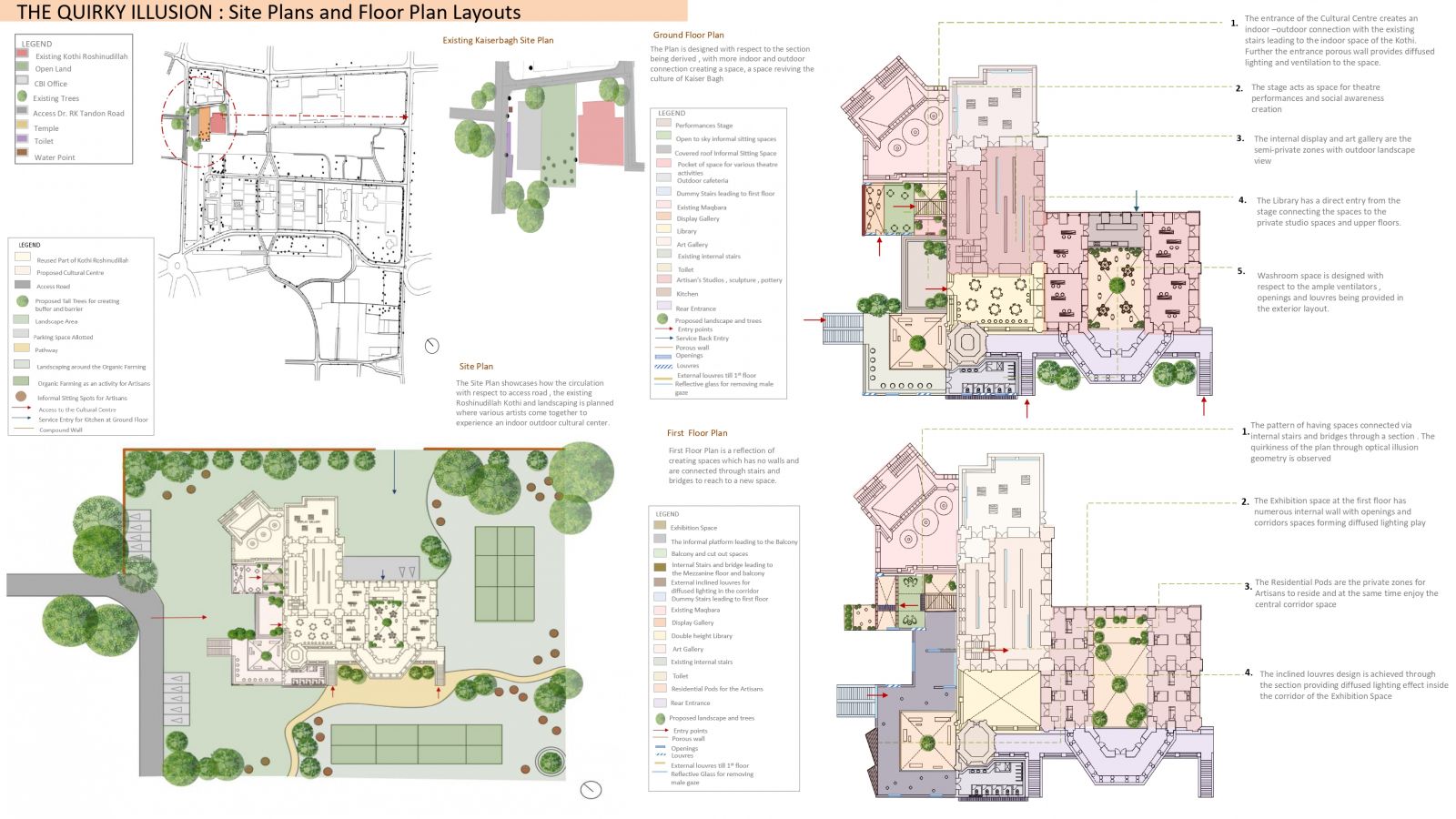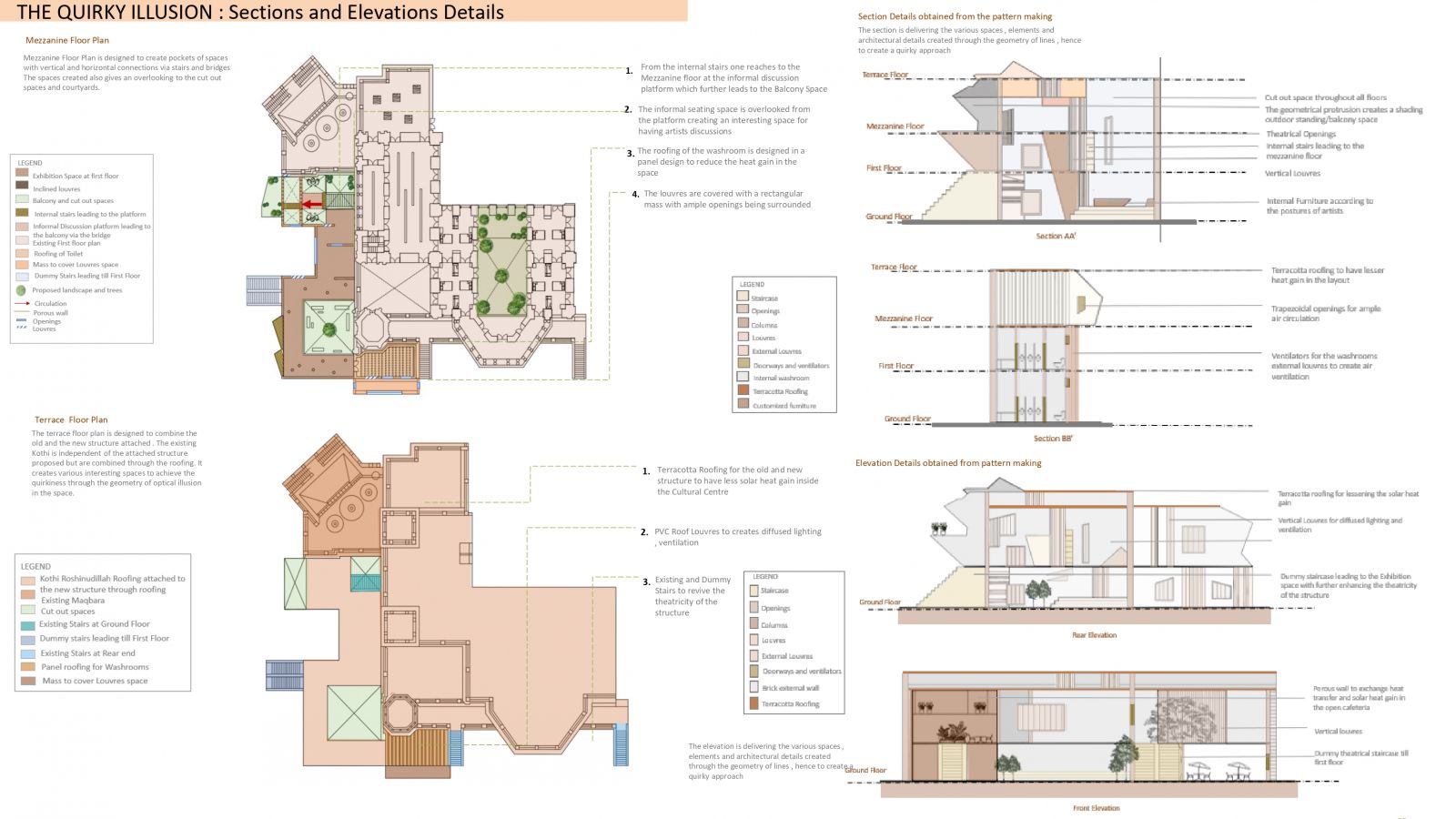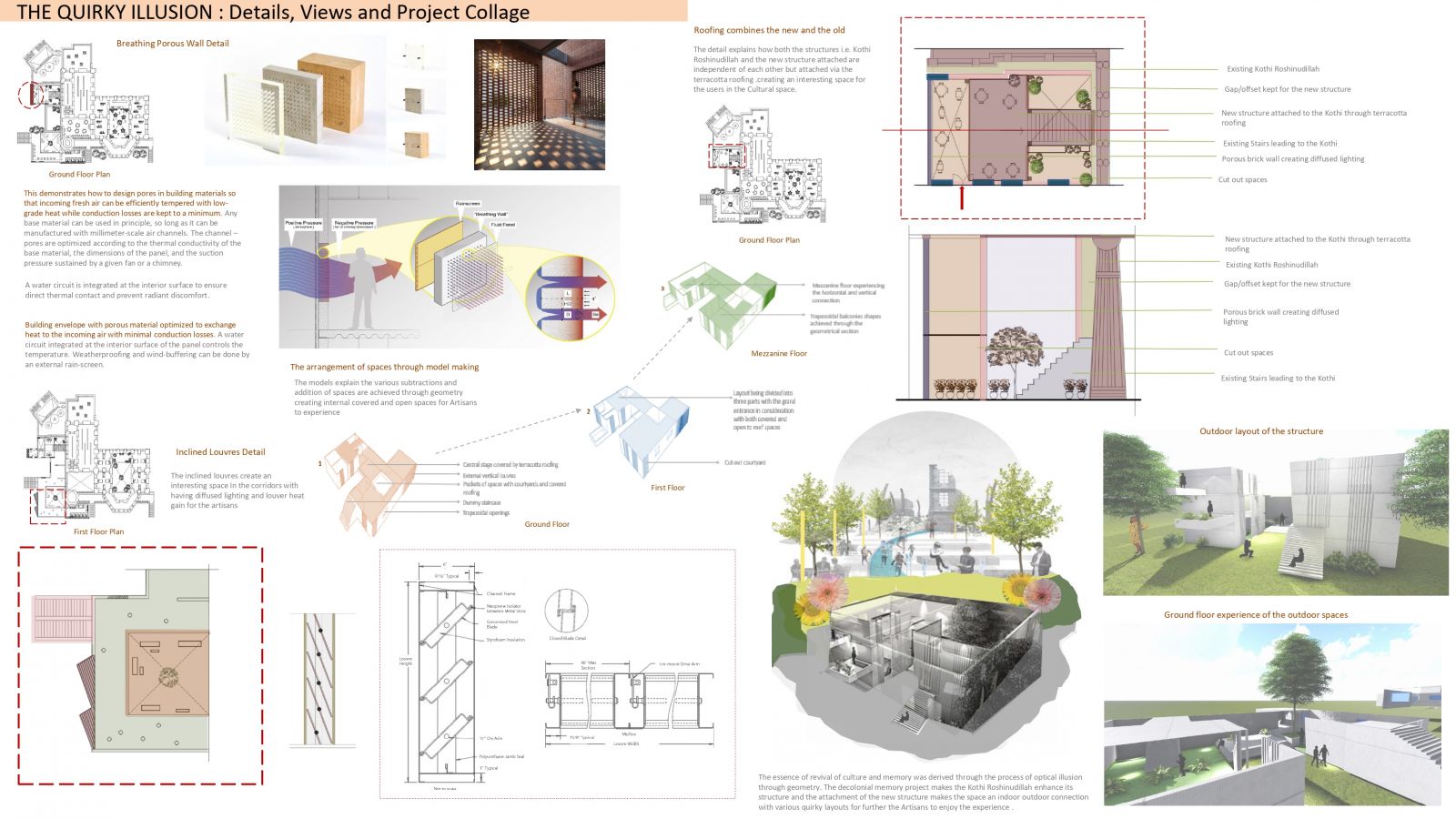- Student SAKSHI MATHUR
- Code PAD21303
- Faculty Architecture
- Unit L4 Studio Unit
- Tutor/s Sonal Mithal
- TA Priyanka Awatramani
Memory begins where history ends. History is not continuous. It is made up of start and stops, of presences and absences. The presences are the times when the active living is in motion, feeding on its own energy to create a narrative. Memorialization as a representation of remembrance past experiences bridge the relationship between memory and architecture. Memorial architecture provides the stage in which it brings people together to unite individual memories into a collective memory. Architectural typology must be defined as the essence of reclaiming the bias and recalling the culture, which participate in contributing to the future that is least calamitous to nature. The site and the historic structure being reused with respect to its material hybridization for performing a futuristic design approach making the structure as a strengthening unit. A decolonial project which reclaims the words said by the "British" and wanting to portray them in quirky and queer way. It also includes a sustained inclination to create a specific type of solidarity to replace heteronormativity and human exceptionalism. Irrespective of their social, and historical constitution, gender, race, and class the basis for belief in ‘essential’ unity. By having no rigid boundaries and hence to encourage instead coalition through affinity. How do we make a decolonial project ? What do we understand by decolonial feminism theory ? By understanding the colonial bias mapping of the site where one unpacks the theoretical bias made by the British. By highlighting the theatrical past and having to celebrate it in a vibrant manner is the essence of unpacking the bias. The architecture towards a Decolonization Entity that will be made up of those who feel the urgency to question the broad historical, cultural and political heritage steeped in colonialism and fascism, and thus begin a common path towards new practices of decolonization and reparation. Decolonial feminism engages with debates pertaining to coloniality/modernity and indigenous identity and gender , while providing a space for the voices and lived experiences of marginalized. Culture has arguably shaped how memory is understood and the uses it has been put to, as can be seen in how the concept has differed across history and societies. But what is culture and how does it operate? Although culture has been variably understood throughout history and even by researchers in the early 21st century, there is consensus that it is something that is taken over from society, rather than being innate, and transmitted across generations with modifications. The new design typology is to redesign and reclaim the word “quirky” where the architecture seen as a mnemonic apparatus to be a decolonial space of remembrance. By revisiting the lost memory, the new spatial typology in the 21st century will be an exaggeration and a larger-than-life design implementation with incorporating the hybridization architecture in which elements of different cultures exist together in symbiosis with the environment, tradition and the most advanced technology as rightly stated by Kisho Kurukawa, in his manifesto “The philosophy of Symbiosis.
